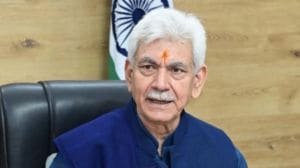Red Fort attack case: Death sentence of LeT militant stayed
The Supreme Court on Monday stayed the execution of death sentence awarded to a Lashar-e-Toiba militant, Mohammad Ashfaq, in the Red Fort attack case of 2000.

The Supreme Court on Monday stayed the execution of death sentence awarded to a Lashar-e-Toiba militant, Mohammad Ashfaq, in the Red Fort attack case of 2000.
A Bench comprising Justices G P Mathur and P Sathasivam also sought the response of the Delhi Police on a petition filed by Ashfaq, who had challenged a Delhi High Court verdict which confirmed the capital punishment awarded to him by the trial court.
Recently, a Division Bench of the High Court had set aside the conviction of six other accused, including Ashfaq’s Indian wife Rehamana Yosuf Farooqui and that of Srinagar-based father-son duo Nazir Ahmed Qasid and Farooq Ahmed Qasid. They were earlier sentenced to life imprisonment by the special judge. However, the court had upheld the trial court findings holding Ashfaq guilty of murder, criminal conspiracy and cheating under various Sections of IPC and under provisions of the Explosives Act and the Foreigners Act. “Death sentence is the only appropriate punishment which Mohd Ashfaq deserves and has been rightly sentenced to death by the trial court and we have no hesitation in affirming that sentence,” the High Court had noted in its judgment.
On December 22, 2000, six terrorists stormed the Red Fort and opened indiscriminate fire killing three persons. Though the Army personnel present in the Fort retaliated, the terrorists managed to escape.
Money laundering Act: SC stays order of appointment
NEW DELHI: The Supreme Court on Monday stayed an office memorandum (OM) issued by the Central Government for appointing members of the Adjudicating Authority formed under the Prevention of the Money Laundering Act 2002. Prima-facie agreeing with the arguments raised on behalf of petitioner Pareena Swarup, a Bench headed by Chief Justice of India K G Balakrishnan issued notice to the Revenue Secretary, seeking his response on the matter. K K Venugopal, counsel for the petitioner, questioned the constitutional validity of the PMLA, 2002 and its several provisions such as Section 6 (dealing with composition of adjudicating authority), Section 25 (dealing with Appellate Tribunal). The petitioner pointed out that all the members including the head of the Adjudicating Authority can be removed by the Centre “without any guideline.” Apprehending that such an executive interference will have far-reaching consequences, Venugopal submitted that the chairperson and members would not be able to discharge their judicial function without fear and favour.






- 01
- 02
- 03
- 04
- 05

























